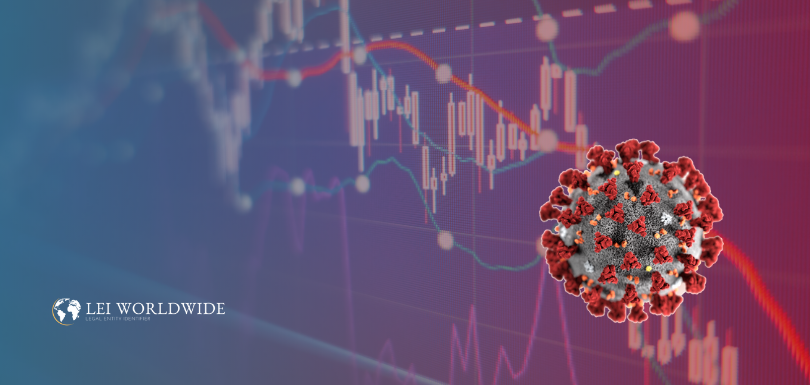|
Global financial markets are in turmoil with the closing of businesses brought on by the COVID-19 crisis. Usually, a terrible situation such as this would inevitably lead to a severe economic downturn. This is the case during and after this pandemic, moreover, we are now made confront another fact; global monetary policy over the last decade and how this effect by an economic downturn. Since the Global Financial Crisis of 2008, central banks throughout the world such as the Federal Reserve, the European Central Bank (ECB) and the Bank of England utilised ever-increasing Quantitative Easing (QE) systems as a means to securing the the global economy against threats. These systems brought about an upturn in the global money supply, a huge reduction in interest rates and protected financial institutions from the looming threat they would otherwise be facing due to becoming over-leveraged. At a glance, the global economy recovered as businesses picked up the broken parts and began again, boosted by increased access to low interest rates and cheaper money. At a policy level the central banks, reduced interest rates to almost zero. This resulted in basically disarming themselves of the weapons they would require as a means to protect against oncoming economic volatility. Moreover, the problem that was caused by over-leveraging financial institutions led to the 2008 disaster not only remained unpacked, but was enhanced. The main problem which remained underlying therefore grew in the background, awaiting a trigger to unleash its wrath. That trigger is COVID-19. COVID-19, also known as Coronavirus, is an infectious disease caused by a new type of corona virus originating in animals. The disease causes respiratory illness (like the flu) with symptoms such as a cough, fever, and in more severe cases, difficulty breathing. At present, the world is still reeling from the direct effects of the last economic crisis. The real economy and has not yet come to terms with the economic storm that will be unleashed hereafter. There is however, a silver lining. Following the collapse of Lehman Bros in 2008, the G20 initiated a global ISO standard that increased transparency in global financial markets; the Legal Entity Identifier (LEI). This identifier serves as a passport number for companies operating internationally, identifying the exact legal entity and its ownership structure, thus avoiding the confusion that reigned in 2008 when financial institutions had difficulty ascertaining their counterparty exposure in a time of economic volatility. Regulators throughout the world have recognised the utility of the LEI as the pre-eminent identifier and a multitude of regulatory reporting mechanisms throughout the world now require an LEI. Indeed under MiFID II, the EU mandate has been described as "No LEI, No Trade". Today, LEIs are also being matched with International Securities Identification Numbers (ISINs), rendering increased transparency for market participants by identifying the financial instruments issued by individual companies. The world is currently facing unprecedented challenges. While peoples' health must be at the forefront of these, the financial well-being of the global system remains a critical priority. At this time, the real utility of the LEI in delivering transparency to opaque markets will undoubtedly come to the fore. Order your LEI now or contact us today to find out more.
0 Comments
|
LEI WorldwideThe views expressed in this blog belong to LEI Worldwide. Archives
April 2022
Categories |
Facilitating the global allocation of LEI numbers.
LEI Worldwide facilitate entity identification in the global financial system, capital markets and private sector. We make the process accessible and simple for Legal Entities to obtain Legal Entity Identifier numbers. By doing this we help facilitate the global allocation of LEI numbers. It is our mission to be the one point of contact globally between Legal Entities & LOU’s and ensuring the LEI becomes the Worlds most important identifier.
Services |
Company |
|
UNITED STATES | DUBAI | GERMANY | NETHERLANDS | UNITED KINGDOM | AUSTRALIA | BRAZIL | CANADA | FRANCE | SPAIN | HONG KONG | CHINA | INDIA | ITALY | SWEDEN | BVI | MALTA | UNITED ARAB EMIRATES | MEXICO LUXEMBOURG | SOUTH AFRICA | BELGIUM | SINGAPORE | JAPAN | MAURITIUS | CAYMAN ISLANDS | TURKEY | PORTUGAL | PANAMA | DENMARK | CYPRUS | KENYA | IRELAND | NEW ZEALAND | GREECE | SEYCHELLES


 RSS Feed
RSS Feed









